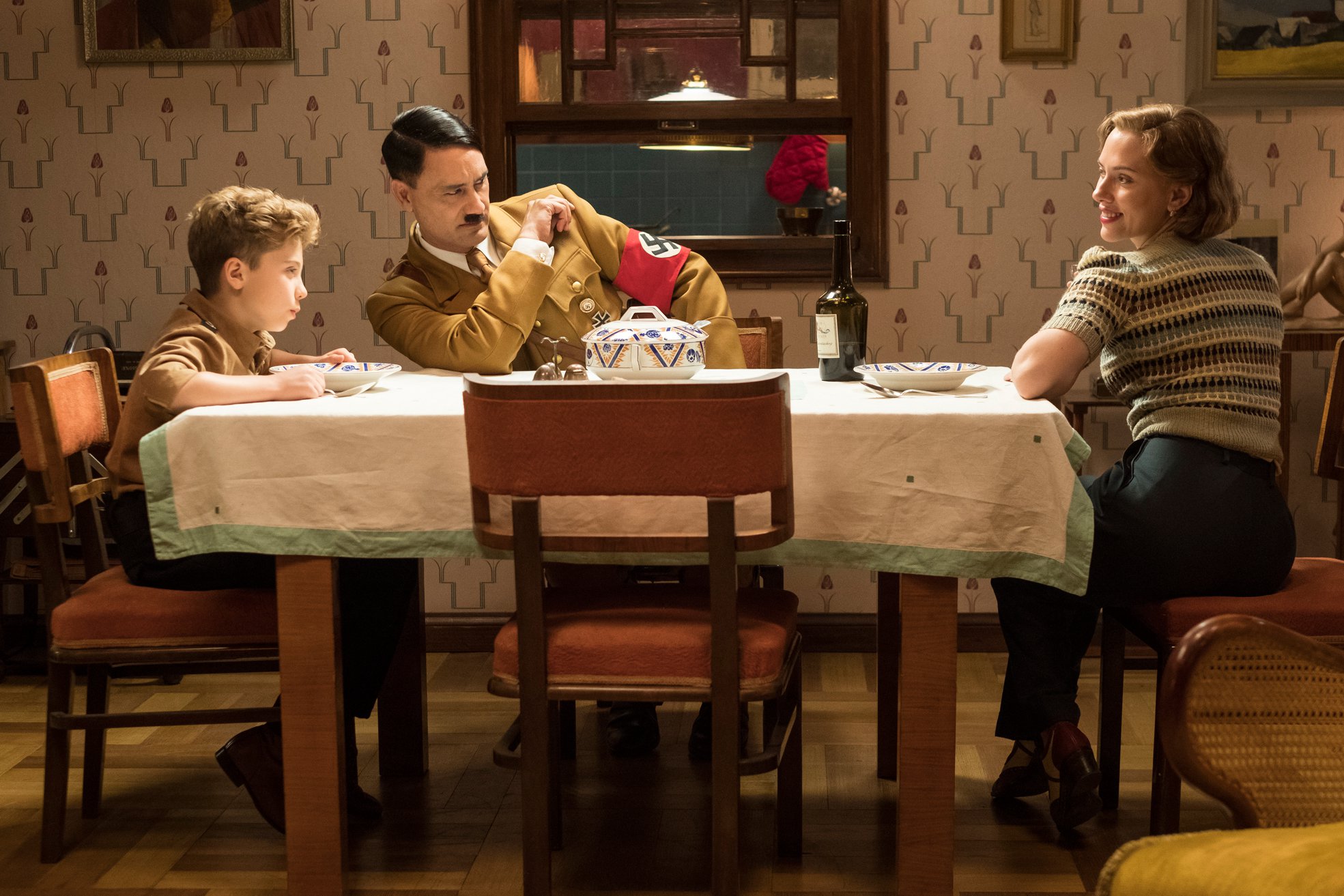Jojo Rabbit follows the story of a 10-year-old German boy and his imaginary friend during World War II. This imaginary friend also happens to be Adolf Hitler. Living alone with his mother, Jojo (Roman Griffin Davis) deals with his missing father and the loss of his sister by trying to find acceptance in one of the worst possible ways; becoming a fanatical Nazi.
After a camp exercise involving a failed attempt at throwing a hand grenade, Jojo is sent home to recuperate. His mother Rosie (Scarlett Johansson) often leaves him alone in the house for long stretches of time while she secretly plasters anti-Nazi flyers all over the city. Lonely and bitter that his friends get to continue camp, he discovers Elsa (Thomasin McKenzie), a young Jewish girl his mother has been hiding behind the panelling in his sister’s room.
Taika Waititi is on triple duty, writing, directing, and starring as an extremely over-the-top Hitler. He plays a goofy, petulant, and belligerent Hitler that manages to be the figment of a child’s imagination without losing sight of the fact that he was a real-life monster. It can be a little jarring and uncomfortable. “I felt weird about it,” Waititi told The Hollywood Reporter. “Even though the character in my film is not evil—he’s got a 10-year-old’s brain because he comes out of Jojo’s head—there’s elements to him that are shared with the actual guy.” While Waititi hams it up as Hitler, Jojo and Elsa both function more as straight men with most of the humorous elements happening to or around them.
At times, Jojo Rabbit’s aesthetic can feel a little like “Moonrise Kingdom, but make it fascist.” Wes Anderson films are almost always enjoyable, but I don’t know if I needed a twee Hitler youth summer camp montage set to German versions of well-known ’60s pop songs.
The jokes are pretty tame considering how easily Jojo Rabbit could have been offensive. There is one bit that includes an unsettling, and possibly record-breaking, amount of Nazi salutes that simultaneously makes the viewer laugh and squirm in their seat in equal measure. Suffice to say, Waititi definitely owes a huge debt to Mel Brooks and The Producers. Mel Brooks’ Bialystock and Bloom walked so Jojo Rabbit could run.
While Jojo Rabbit starts with irreverent jokes, it ends on a touching note as Jojo and Elsa’s friendship blooms. The political climate makes this film feel very relevant, and Waititi leans into drawing parallels with current waves of racism and white nationalism. He addresses the reality of living in a war-torn city, but also manages to gloss over a fair amount of the atrocities of Nazi Germany. The film stumbles a bit towards the end, at times almost sending the message, “look, not ALL Nazis are bad,” which seems to be at odds with a film that claims to be an “anti-hate” satire. But otherwise, it’s a worthy addition to the current conversation around hate.






